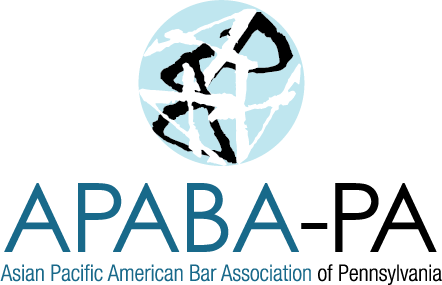
CLE program: Qualified Immunity at a Crossroads
Date: 3/5/2021
Time: 12pm to 1:15pm
Venue: Zoom teleconference
Registration required!
Pennsylvania CLE credits have been requested for this presentation, and will be approved once APABA-PA becomes a fully accredited distance-learning provider. APABA-PA will report credits to PACLE. Thus there will be a delay in the reporting of CLE credits.
This program will be recorded and will be available for later viewing.
Summary: This 1.0 hour CLE program will provide an overview of 42 USC § 1983, the Supreme Court’s qualified immunity jurisprudence, and a post-George Floyd reform agenda.
Description:
George Floyd’s killing and the 2020 Black Lives Matter protests have refocused the public’s attention on civil rights violations at the hands of police and other government officials. In the post-Civil War period, Congress previously addressed violence and other rights violations by enacting 42 U.S.C. § 1983 to provide plaintiffs with a civil remedy and deterrent against state officials violating their rights when acting under color of state law.
Pointedly, Congress never authorized federal judges to create a qualified immunity defense, or so called “good faith” defense, to liability.
Still, that lack of congressional authorization has not stopped federal courts from erecting a formidable barrier to plaintiffs from recovering, one that leaves victims without remedies while simultaneously short circuiting the development of constitutional jurisprudence that would place officials on notice of their constitutional obligations.
This one (1) credit substantive CLE will survey and critique the U.S. Supreme Court’s evolving qualified immunity jurisprudence as well as the efforts by a broad coalition of groups to invite the Courts and the Congress to reconsider the defense. Susan Lin, a partner with Kairys, Rudovsky, Messing, Feinberg & Lin LLP, will offer a perspective from Philadelphia on § 1983 and qualified immunity litigation. Jay Schweikert, a policy analyst with the CATO Institute, will address the history of qualified immunity and the legal effort at the Supreme Court to invite a cross-ideological reexamination of the doctrine. Professor Tuan Samahon, Villanova University Charles Widger School of Law, will moderate the discussion.
Speakers:
- Jay Schweikert
Jay Schweikert is a policy analyst with the Cato Institute’s Project on Criminal Justice. His research and advocacy focuses on accountability for prosecutors and law enforcement, plea bargaining, Sixth Amendment trial rights, and the provision and structuring of indigent defense. Before joining Cato, Jay spent four years doing civil and criminal litigation at Williams & Connolly LLP. He holds a J.D. from Harvard Law School, where he was an Articles Editor for the Harvard Law Review, and chaired the Harvard Federalist Society’ s student colloquium program. Following law school, Jay clerked for Judge Diane Sykes of the U.S. Court of Appeals for the Seventh Circuit, and Judge Laurence Silberman of the U.S. Court of Appeals for the D.C. Circuit. He holds a B.A. in political science and economics from Yale University.
- Susan Lin
Susan Lin is an experienced criminal defense attorney who has won numerous jury trials in both state and federal court. In addition to her trial work, she has guided many clients through the process of serving as a witness in grand jury proceedings and negotiating plea agreements with prosecutors. Ms. Lin is deeply familiar with federal sentencing law and has secured favorable sentences for her clients. She has also litigated numerous federal appeals and habeas petitions, including challenges to both state and federal convictions. She has represented individuals charged with a wide variety of offenses, including drug trafficking, assaults, robberies, kidnapping, firearm offenses, money laundering, trademark infringement, white collar fraud, immigration violations, sex crimes and international trade violations.
Upon joining Kairys, Rudovsky, Messing & Feinberg, Ms. Lin has expanded her practice area to include civil rights litigation in cases involving misconduct by law enforcement officers.
Susan Lin has studied in Mexico, Chile, Taiwan, and China and is proficient in both Spanish and Mandarin Chinese. As co-chair of the Marutani Committee of the Asian Pacific American Bar Association of Pennsylvania, Ms. Lin takes great pleasure in helping to award summer fellowships to law students interested in government or public interest careers. She also serves as a member of the Legal Committee of the Philadelphia branch of the American Civil Liberties Union. She has taught the Federal Defender Clinical as an adjunct faculty member at Temple Law School. Ms. Lin is a regular contributor to the Federal Defender Third Circuit Blog.
Ms. Lin is a 2004 graduate of Yale Law School and a 2000 graduate of Swarthmore College, where she was awarded high honors by external examiners. After law school, Ms. Lin clerked for the Honorable Anita B. Brody of the U.S. District Court for the Eastern District of Pennsylvania. She then worked as a local public defender at the Defender Association of Philadelphia. Prior to joining Kairys, Rudovsky, Messing and Feinberg as an associate attorney in 2014, Ms. Lin was an Assistant Federal Defender in the trial and appellate units at the Federal Community Defender Office for the Eastern District of Pennsylvania.
Moderator:
- Tuan Samahon
Tuan Samahon teaches and writes in the areas of federal courts and constitutional law. His articles have been published in the Stanford Law Review, Ohio State Law Journal, Hastings Law Journal, William & Mary Bill of Rights Journal, University of Chicago Legal Forum, Denver Law Review, and Villanova Law Review, among others.
Beyond his scholarship, Tuan is engaged in interpreting and fashioning federal constitutional law. He has testified before the U.S. Senate Judiciary Committee, Subcommittee on the Constitution, and has served as counsel in separation-of-powers and Freedom of Information Act litigation in federal trial and appellate courts. Recently, Tuan prevailed against the CIA in a
civil action for the release of the draft fifth volume of its secret history of the 1961 Bay of Pigs operation. In addition to representing others, for a book he is researching, Tuan successfully sued the FBI for the release of agency records detailing high-ranking executive and judicial officers’ abuses of power.
Tuan received his B.A. from Brigham Young University and his J.D. from Georgetown University Law Center, where he was an Olin Law and Economics Research Fellow and was co-awarded the Olin Prize in Law and Economics. Prior to entering teaching, he clerked for U.S. District Judge Raymond A. Jackson on the Eastern District of Virginia and for U.S. Circuit Judge Jay S. Bybee on the Ninth Circuit. He also practiced in the Washington, D.C. office of Covington & Burling. Professor Samahon was named “Professor of the Year” by his students at the University of Nevada, Las Vegas. He teaches civil procedure, federal courts, and constitutional law subjects.
During spring 2017, Tuan served as a Fulbright scholar with the law faculty at the University of Zagreb, Croatia.
- On February 10, 2021

